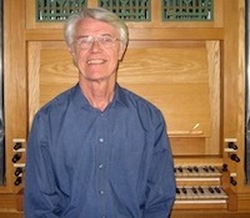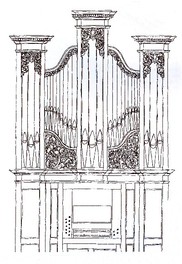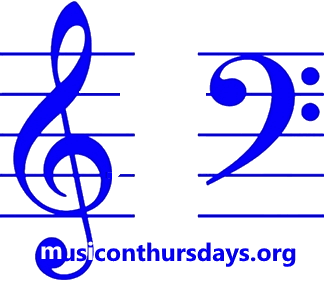17th May 2012 - 12.30 Lunchtime Concert

Anthony Cairns, organ
From Blitheman (c1560) to Battishill (c1775) and Grayston Ives (1980)
Programme
Gloria tibi trinitas: 6 variations (c1570)
William Blitheman (d1591)
Voluntary & Fugue in F minor (1728)
Thomas Roseingrave (1690-1766)
See, the conqu'ring hero comes (1746)
Georg Frideric Handel (1685-1750)
Voluntary in G minor, Op 5, No 9 (1748)
John Stanley (1713-1786)
Cornet Voluntary No 1 in E minor (c1760)
William Walond (1725-1770)
Trumpet voluntary in D (1758)
John Bennett (1735-1784)
Air in D (1758)
Jonathan Battishill (1738-1801)
Alla marcia
Lullaby; Processional (1980)
Grayston Ives (b1948)
Anthony Cairns, organ

Anthony Cairns, MA, BMus, ARCM, has been organist and choirmaster at Christ Church, Leatherhead since 1965, and was consultant for organ rebuilds there in 1970 and 1995. He briefly studied piano teaching, cello, and choir training at the Royal College of Music and holds degrees in law (Cambridge, 1961) and music (London, 1977).
Anthony taught class music in Surrey secondary schools, becoming Head of Music at Esher College in 1977. He taught academic music and keyboard harmony at the Purcell School 1987-97. He was conductor of Leatherhead Choral Society 1991-2000, and formed the Leatherhead chamber choir AntiphoniA in 2007.
As an organist Anthony is largely self-taught, and particularly admires Peter Hurford and Olivier Latry. He is certainly regarded as one of the friends of the Thomas Parker organ, having given several recitals on the instrument, and played the Parker for the annual Service of Lessons and Carols for which Leatherhead's URC, Methodist and Anglican churches come together in the Parish Church.
Anthony has his own season of concerts on the Hill, Norman & Beard organ of Christ Church URC, Leatherhead. Details of which are on this link.
Of this recital programme Anthony writes: I have selected a group of pieces which might have been played on the Parker organ when it was new in 1766. Much of John Stanley's organ music was designed for a 3-manual organ, but some can be managed on one manual plus short-compass echo keyboard. Apart from a few published fugues for organ or harpsichord, Handel's contribution to the repertoire consisted of twelve organ concertos, which include occasions for improvisation, and his improvisations (which we shall never hear) between the parts of his oratorios. I am sure the organists of his time would have played Handel choruses, especially when they had an instrument with an echo keyboard.
As an introduction, we go back two centuries earlier, when there was no distinction between music for a single-manual organ and harpsichord, but the use of a plainsong theme indicates how organists were taught to improvise. Blitheman shows in his six remarkable variations, on a favourite phrase from a Taverner mass, how an experienced organist might work out his rhythmical and textural ideas.
Too few modern organ composers take the trouble to write for pedal-less organ. Two contrasting pieces by Grayston Ives bring the programme up to the recent past.
Thomas Parker Pipe Organ of 1786

Any concert in which the restored 18th century Thomas Parker Pipe Organ is played has to acknowledge the instrument as one of the stars of the occasion. The parishioners and people of Leatherhead are justly proud of this historic instrument, and of the efforts they put into the fund-raising and many other arrangements for its restoration.
The restoration work was undertaken by Dominic Gwynn of Goetze & Gwynn.
There is a great deal of coverage of the restoration project and of the history of organs in this church on the parish website at: http://www.parishchurch.leatherheadweb.org.uk/parkerorgan/.





